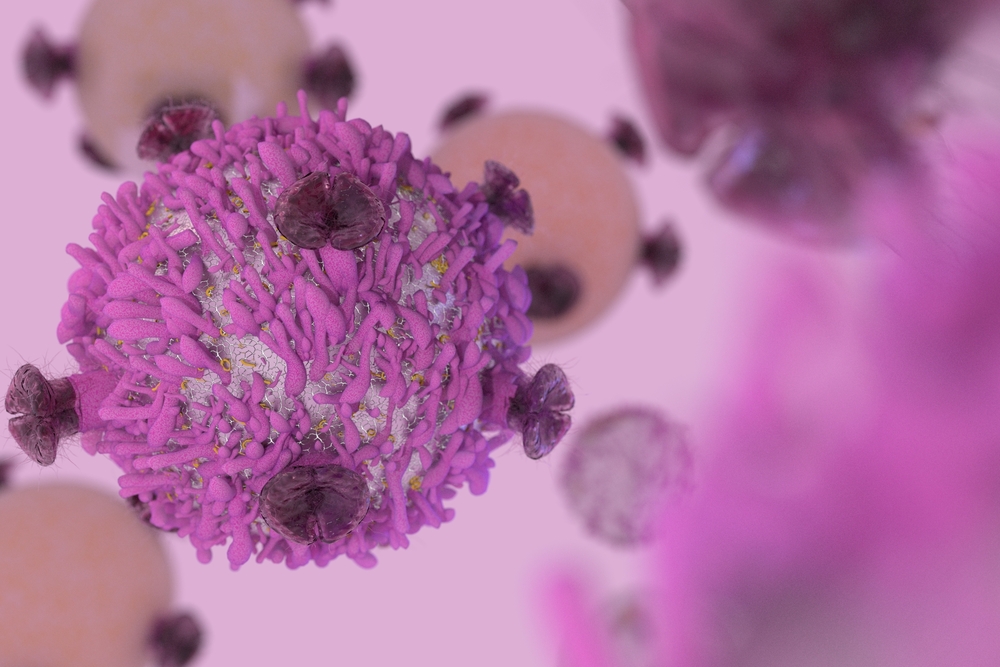Bristol-Myers Squibb Issues Four-year Follow-up Findings for Empliciti Triple Combo Therapy
Written by |

Treatment with Empliciti (elotuzumab) plus Revlimid (lenalidomide) and dexamethasone (ELd) in patients with relapsed/refractory multiple myeloma (RRMM) continued to show effectiveness in the Phase 3 ELOQUENT-2 trial (NCT01239797) after four years of follow-up, Bristol-Myers Squibb announced.
After the four-year period, 21 percent of patients were still alive and disease-free, which contrasted with the 14 percent of patients receiving Revlimid and dexamethasone (Ld) alone.
The findings were presented recently at the 22nd Congress of the European Hematology Association in Madrid, Spain, and represent the longest follow-up assessment of efficacy and safety of an immuno-oncology drug.
The oral presentation, titled “Phase 2 ELOQUENT-2 study: extended 4-year follow-up of elotuzumab plus lenalidomide/dexamethasone vs lenalidomide/dexamethasone in relapsed/refractory multiple myeloma,” was given by Meletios A. Dimopoulos, MD.
Empliciti is an immunostimulatory antibody that specifically binds to SLAMF7, a glycoprotein, or a protein attached to a carbohydrate group, located at the cell-surface. SLAMF7 is found in myeloma cells and in immune cell subsets.
The ELOQUENT-2 trial included 646 patients with relapsed or refractory multiple myeloma who had received one to three prior therapies. Patients received either ELd or Ld in 28-day cycles until their disease progressed or they experienced unacceptable toxicities. Treatment consisted of a weekly intravenous dose of 10 mg/kg of Empliciti in the first two cycles, followed by every-other-week injections in the following cycles, 25 mg of oral Revlimid for days 1-21 and 40 mg of oral, weekly dexamethasone.
Participants receiving Empliciti saw a 29% reduction in the risk of disease progression or death, compared to those receiving Revlimid and dexamethasone alone. Furthermore, the Empliciti combo led to a 50% improvement in progression-free survival (PFS) rate, compared to the control group. This improvement was consistent across certain patient subsets and was sustained throughout the four-year study duration.
More patients receiving the triple combination responded either partially or completely to treatment (79%) compared to those in the control group (66%). Median overall survival also was longer in the Empliciti group — 48 months vs. 40 months.
“These extended four-year follow-up data demonstrated that adding Empliciti to Ld yielded clinically relevant improvements and reductions in the risk of disease progression or death for patients with [relapsed or refractory multiple myeloma], compared to Ld alone,” Dimopoulos said in a press release. Dimopoulos is professor and chairman of the Department of Clinical Therapeutics at the National and Kapodistrian University of Athens School of Medicine, in Greece.
“This data at four-year follow-up is particularly notable as it suggests the ability of this Immuno-Oncology agent to build a sustainable immune response in some patients with advanced multiple myeloma,” he added.
The incidence of adverse events (AEs) in the Empliciti and control groups were similar and matched those reported at earlier timepoints. Common AEs included diarrhea, fatigue, anemia, pyrexia, constipation, neutropenia, and cough.
Severe AEs occurring in 5% or more patients also was comparable in both groups, including vascular diseases and cardiac disorders. The triple combo therapy showed a slightly higher incidence of infection and second primary malignancies (cancers that occur after treatment of the original cancer). However, exposure to Empliciti was longer, with a median treatment cycle of 19 months compared to 14 months in the control arm. Fewer cases of disease progression and infection as causes of death were reported in the Empliciti arm (165) than in the control arm (186).
“The long-term efficacy data for Empliciti in patients with advanced multiple myeloma shows the combination of this Immuno-Oncology agent with standard Ld treatment can improve patient outcomes,” said Jonathan Leith, PhD, hematology development lead at Bristol-Myers Squibb.
The combination of Empliciti with Revlimid and dexamethasone has been approved by both the U.S. Food and Drug Administration (FDA) and the European Commission for use by multiple myeloma patients who have received one to three prior therapies, or who have received at least one prior therapy, respectively.






